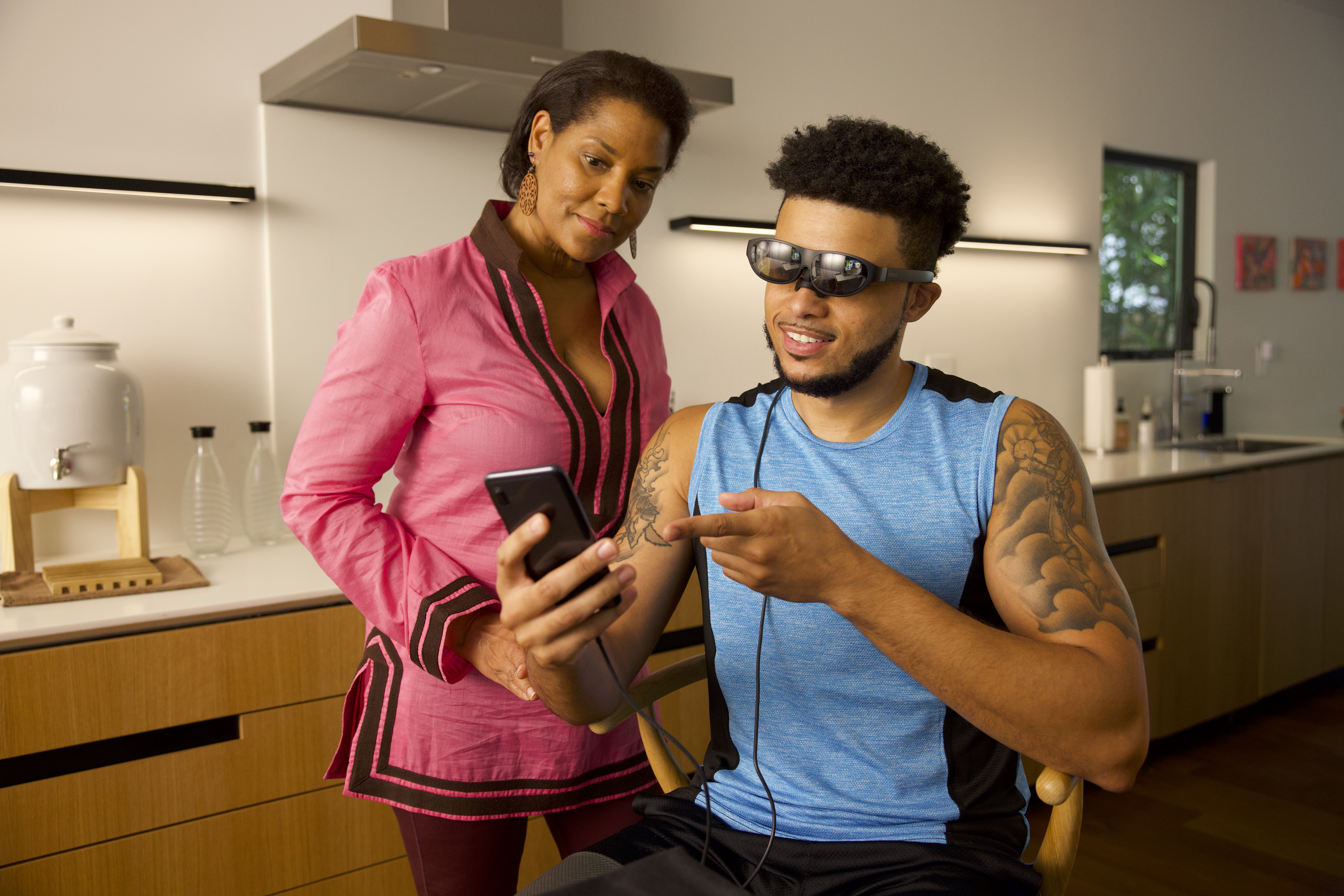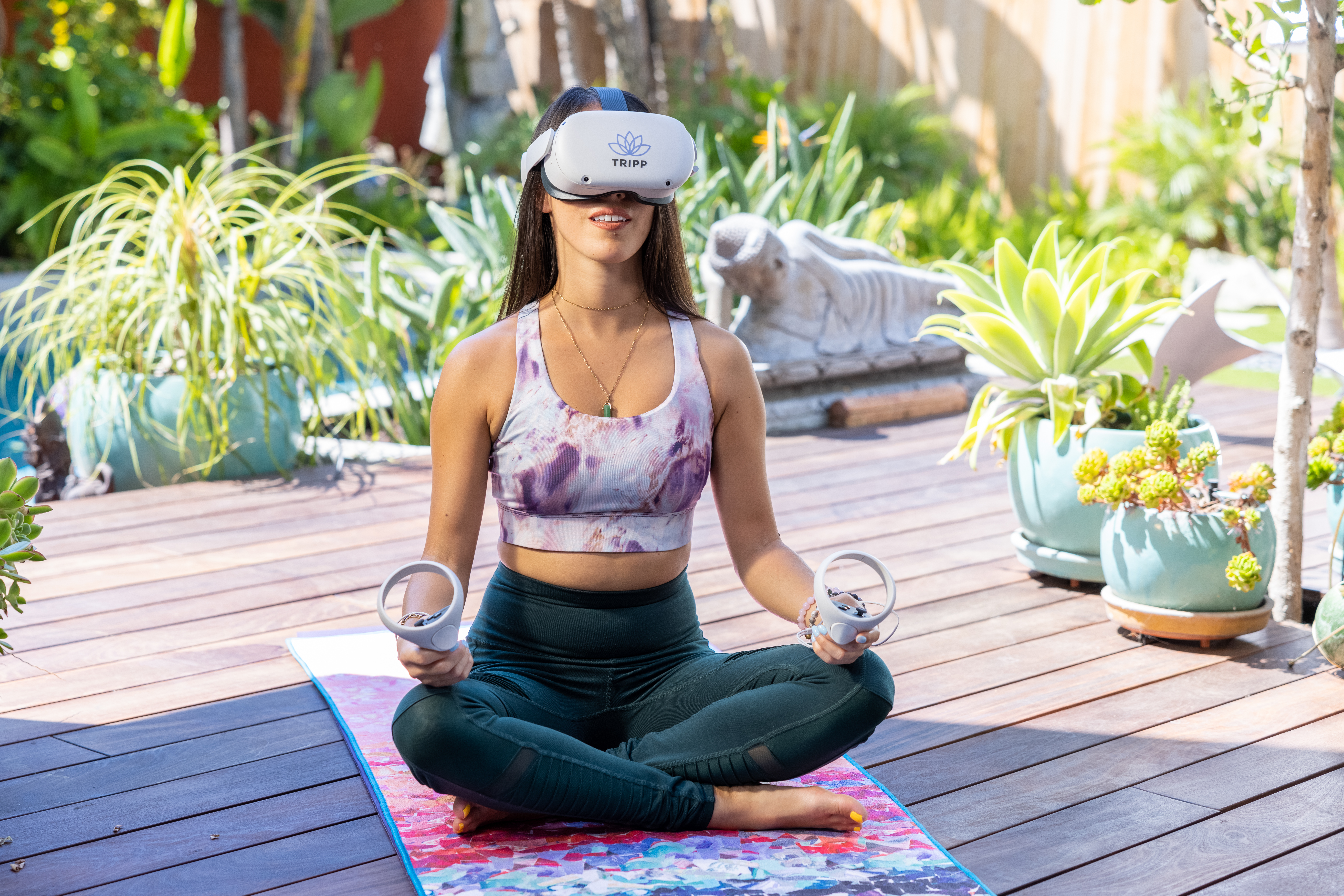Tripp acquires EvolVR to help more people fly higher in the metaverse
California-based “XR wellness and digital psychedelics platform” Tripp continues its acquisition path to growth with its acquisition of the world’s largest VR meditation community, EvolVR, following its purchase last year of PsyAssist, a mobile app used by people to keep their psychedelic experiences on track. The acquisition comes alongside the company revealing it is working […]

California-based “XR wellness and digital psychedelics platform” Tripp continues its acquisition path to growth with its acquisition of the world’s largest VR meditation community, EvolVR, following its purchase last year of PsyAssist, a mobile app used by people to keep their psychedelic experiences on track. The acquisition comes alongside the company revealing it is working on an alternate reality (AR) experience as one of the launch partners for Pokémon GO-maker Niantic‘s new toolkit, Niantic Lightship.
EvolVR, founded by a Unitarian Universalist minister and meditation instructor, claims to be the world’s first — and the largest — live meditation community in VR, claiming more than 40,000 people don a VR mask to tap into the powers of meditation. Tripp, in turn, is no slouch itself; the company claims it has served more than 3.5 million wellness sessions, combining “meditation techniques, flow-inducing gameplay, binaural audio and breathing exercises” to inspire wonder while transforming how users feel. The sessions are designed to help people relax and tune in, but also can be used to facilitate psychedelic journeys.
Growing audience size by acquiring community-focused organizations can be a great vector for growth — but of course, not all communities are a fan of being “bought,” especially if the buyer fumbles the transition period. I spoke with Tripp’s CEO and founder Nanea Reeves to get a bit more context for the acquisition, and to learn what’s next for the high-flying VR / meditation / spirituality / psychedelics mash-up of a company.
With a name like Tripp, I had to ask; where did that come from, and what is the link with psychedelics?
“It’s less about the psychedelics and more about VR as an experience. When I had an early dev kit for the Oculus, anytime anybody did a VR experience, people would take the headset off and go, ‘Wow, that was a trip!’. There is something around the experience of having a current reality and being aware of it — and then also experiencing an alternate reality. Obviously, you can have that with substances as well, but VR in and of itself has that mechanism. That inspired the name,” explains Reeves.
“On the psychedelic side, they found us after we launched our consumer product. There was a lot of interest from the psychedelic community in what we were doing, and we saw some organic adoption — in places like ketamine clinics — of our consumer product. We decided to look at that as our journey into the clinical areas. We think that there are ways that we can work with clinical deployments [in palliative care and psychedelic treatments] in a much more focused effort on how to prepare someone for a treatment to reduce their anxiety, and how to support them post-treatment.”
“We have a separate initiative and an application bundle called PsyAssist that is targeting the protocol for psychedelic and mental health. In those areas we can be a support tool. We’re going into some pilot studies right now specific to ketamine in the first two quarters of this year.”
“We have found that some of our most meaningful consumer interactions have been with people using our product at the end of life. Not only did they find benefits from having a container or to help them with distraction from what they were experiencing physically — the families and caregivers could also use the Tripp experience to de-stress. When we get feedback from users reporting how our toolkit and our app have helped them in various ways, as an entrepreneur, you can’t ask for more; to know that your efforts are actually making a difference for people.
The EvolVR acquisition
The company raised a $4 million round led by Mayfield, followed by a $11 million round led by psychedelic life sciences-focused investor Vine Ventures and Mayfield in June last year. The company is planning to dual-track the clinical side and the community-building for transformative experiences. The EvolVR acquisition is an obvious part of the community side of the equation.

Tripp is working with the Niantic Lightship platform to create an AR product launching toward the end of 2022. Image: provided by Tripp
“I had some awareness of the EvolVR community; I’d meet people in VR, and they’d keep mentioning Jeremy [Nickel, founder of EvolVR]. I didn’t think it would be that compelling to meditate in a group with avatars, but I went and tried a few of their meditations, especially during the pandemic. I liked the fact that they had a guided meditation experience that made me feel the presence of the other people doing it with me,” explains Reeves. “When I was at Electronic Arts, I knew how toxic game communities can be and how they are not friendly to women. What I saw in EvolVR was a meditation group leader who created a safe space. They knew how to moderate the group in a way that impressed me. Even when the trolls turned up, they were ineffective. Even as the metaverse is expanding, it’s important to have zones where you’re free from harassment. We can create these mindful chill spaces that encourage a deeper connection to self and to others.”
“Jeremy and I have kept [the acquisition] quiet. He thinks his community will be excited about it, and we need to communicate with his 14 meditation leaders, because they’ll come under our umbrella as well. We are trying to think about what the mindful metaverse looks like.”
How is EvolVR going to change as a result of the acquisition?
“I am hoping to mark the occasion. I was thinking we could have an ambient music DJ event and a launch party of our two communities coming together. We’re excited to do something really cool,” says Reeves. “From a programming standpoint, I want to scale beyond just group meditations. We want to do sound baths. We’re going to do breathwork. We have some ideas around how we create ambient music ‘ecstatic dance’ movement events. There’s a cool opportunity to use the abstraction of VR to help you let go with a community. It’s the perfect use case for VR: It gets around the stigma, you can do it in the privacy of your own home. It’s a less embarrassing kind of thing, and you can still benefit from it.”

I tried out the Tripp platform. It takes a little getting used to, but it is pretty relaxing. That’s not me in the photo. Image: provided by Tripp
“I’ve been very pleased by how broad [Tripp’s] audience is. The majority of our audience is millennials, with Gen X as a very big second cohort. About 8% of our audience is 65 or above. VR is still a shared device, and we do see whole-household usage, and we see evidence of people having their kids use Tripp to help them focus before they do homework, for example. Eventually, we expect most people will have data-enabled head-mounted displays in the future. Ideally, we want to be the support toolkit to help you manage your emotional well-being. From there, we can target use-cases like addiction or palliative care. The core benefit really is how do we help you have agency over how you feel in the moment.”
“We see that with the current-generation meditation apps with just audio, people are getting more and more comfortable with looking for solutions. I think we can help take it to the next level, where you can experience those states of being. My goal would be that we’re a regular self-care toolkit for you to access at times of great need and for ongoing help.”
The acquisition was a combination of cash and equity, but Tripp isn’t disclosing the details of the deal.








